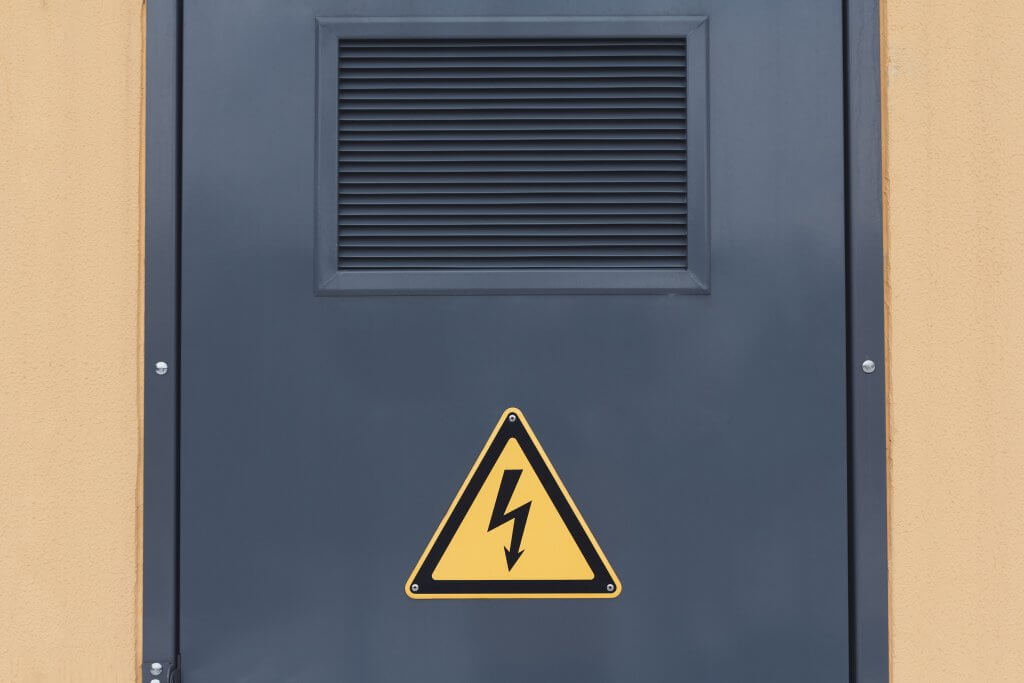
We open and close them every day. Commercial doors serve many more purposes than most people realize. Providing privacy for confidential meetings and distraction-free workspaces is only a small part of what a commercial door is chosen for. Let's talk about the benefits of a Fusible Link Louver Door for Fire Safety
Exterior and interior doors installed in a commercial building direct traffic flow, improve comfort, and assist in office function. Some doors incorporate special features to protect against break-ins, severe weather, fires, and other emergencies.
The people going in and out of your building’s doors spend very little time thinking about their function. And if everything is working properly, they shouldn’t need to. But when it comes to fire safety, it’s helpful to know about the features that are in place on the doors you use.
A fusible link is a small, simple mechanism that makes everyday life safer in many ways. The link is designed to melt or fuse at high temperatures, such as during a fire, creating a purposeful break in whatever it’s connecting.
There are two main types of fusible link.
A mechanical fusible link is made of two metal strips that separate when they are triggered by heat. Mechanical links are commonly used in fire safety devices, such as fire sprinkler systems and the door release systems that automatically close fire doors.
Electrical fusible links are features in high-current electrical systems like those in some automobiles. They protect wires by melting when electrical currents run too high, therefore disrupting the link between two connections.
Louvers or door vents can be added to almost any commercial wood door. The open louvers improve air flow, while maintaining privacy and security. Louver slats are either adjustable, allowing occupants to control the amount of air coming into a room, or they remain fixed in place.
In public settings, louver inserts are common in restrooms, server rooms, and mechanical closets, as well as other small spaces where ventilation is necessary.
Experts often recommend louvered doors in high-storm or hurricane zones to provide ventilation while still preventing blowing rain from entering.
There are two types of commercial louvers. Fixed blade (AFDL) louvers are not fire rated and have no fire-related function. Fusible link door louvers (FLDL) are fire rated up to 90 minutes. Only add louvers to doors with a fire rating of 20 minutes or more.
Thanks to the fusible link, FLDL louvers slowly close and lock in place when room temperatures rise during a fire. With the louvers closed, the door becomes flush and closed. In this position, a fire-rated door can prevent fire from spreading for up to 90 minutes or to the maximum rating of the door.
According to Fire Engineering, closing doors during a fire saves lives. The benefits of a fully closed door include:
There is some confusing information about the benefit of open louvers during a fire. Unless controlled by a trained firefighter, ventilation can increase the speed of burn and make a fire more even more hazardous. Fusible link louvers automatically close, creating the safest environment during an emergency.
You cannot close fixed louvers. Besides their lack of fire safety, rooms needing privacy or sound insulation should avoid using non-adjustable louvers. Occupants of a room with fixed louvers may find it frustrating that they cannot adjust the amount of light and cool/warm air entering the room.
Adjustable FLDL louvers are suitable for most interior commercial doors, and in some cases, building codes may require their use. Consult local code authorities to determine if and when your building requires fusible link louver doors.
Fusible link louver doors help to improve the aesthetics, function, and safety of commercial wooden or steel doors. If you’d like to bring the benefits of fusible link louvers to your workplace, use CDF Distributors’ convenient planning guide to learn more about the fire safety products and services that we have available.
April 26, 2021
Wayne Foreman